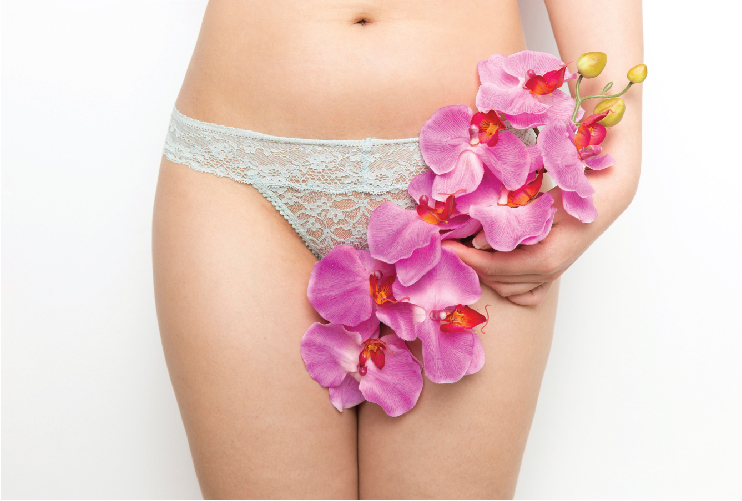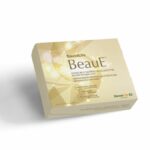Intimate Care: What Every Mom Should Know
We care very much for the skin, hair, teeth, eyes, etc, but what about our private region? Believe it or not, without proper care, a woman’s vagina may be a cause for health concern!
A healthy vagina is naturally acidic and contains rich quantities of beneficial bacteria that help fend off infections and maintain a normal pH level. A vagina is designed to self-cleanse via the secretion of small amounts of discharge, much like how saliva cleanses the mouth. Here’s how to maintain good vaginal health so that there is no interference with these normal conditions.
Clothe Yourself Comfortably
A woman’s vagina is meant to be clean, cool and dry. Clothing can affect that, for certain fabrics and styles of clothing, when worn close to the genitals, can increase heat and moisture. This could easily lead to the growth of ‘harmful’ bacteria and paves the way for infections too.
Cool cotton underwear is always the best choice. avoid using tight panties, or thongs, which can easily transfer bacteria from your anus to the vagina. Tight-fitting clothing, especially pants, is not only uncomfortable, but they wreak havoc with your vaginal health too. Going swimming? Don’t forget to change out of the wet swimsuit as quickly as possible. The same goes for sweaty gym clothes.
Lub Up Before Love
During intercourse, some women do not produce enough natural lubricant for comfortable sex. If you’re one of them, use an artificial lubricant for it will help to reduce friction and irritation. Avoid petroleum jelly for this purpose, and other oil-based products, if your partner is using a condom – they can cause the latex in condoms to break down and also might cause infection. Remember, keeping well-lubricated is an important part of intercourse, for, without it, your vagina can become irritated and chafed, leading to other more serious discomforts.
Sex Should Not Hurt
Consensual sexual intercourse should not hurt, but it does for many women. If you’re one of those women, see your doctor. Don’t be too embarrassed to speak up about this, for if you do, it’s you who will be suffering in silence! A doctor can help remedy the situation for you but he or she will have to know what the problem is first.
Eat Well For A Healthy Vagina
It may seem off-beat that a good diet greatly influences your vaginal health, but it does! A nutritious diet, together with lots of water, is key to vaginal and reproductive health. Some foods may even help treat vaginal issues and discomfort. Cranberry juice is known to aid in treating urinary tract infections, for instance, while yogurt can potentially help prevent yeast infections. Soy products, which contain a weak form of estrogen, is believed to be helpful in aiding natural lubrication.
Maintain An Ideal Vaginal PH Balance
Normally, vaginal pH is about 3.8 to 4.5. When cleaning your vagina, keep in mind that harsh soaps or cleansers on the vulva or inside the vagina can affect a healthy pH balance. If your vagina has a strong or unpleasant odor, see your doctor. If you use a douche remember that it is known to interfere with the healthy pH levels of the vagina and also, it reduces the acidity levels of the vagina too. Plus, if you are dealing with unpleasant odours, the douche will only cover up the smell without getting to the cause of it.
Good Hygiene Is Paramount
You’ve heard this again and again, but just in case, here it is again: After a bowel movement, wipe from front to back to avoid bacterial contamination of the vagina and to lower the risk of bladder infection.
When you’re having your period, don’t go too long without changing your sanitary pad or tampon. Unless you have very heavy discharge, minimize the use of panty liners too, for they tend to keep moisture and heat near your vagina, which can result in infection.
Note: The amount of vaginal discharge a woman experience varies widely. Some normal, healthy women experience loads of it, while others are bone dry. As long as you are not at risk of STD’s and you have no itching, burning, or odour, you’re probably just fine. If in doubt, see your gynecologist.
Never Neglect Infections
The vagina is susceptible to three types of vaginal infections and they are:
Yeast infection: Caused by several types of fungi
Bacterial vaginosis: Caused by bacteria overgrowth in the vagina
Trichomoniasis: A sexually transmitted infection.
Do not hesitate in seeing a doctor for treatment for any of the above conditions, for they can lead to unpleasant, painful, and serious reproductive health problems if left untreated. All three are can be treated with oral or topical medications.
Have A Regular Gynecological Check-up
This is crucial in maintaining the vaginal health of every woman of child-bearing age. Gynecologists and many family physicians are trained to diagnose diseases and disorders that can harm the vagina or your reproductive system as a whole. Gynecologists also perform Pap smears, which can detect changes in vaginal cells that might indicate the presence of cancer.
Beneficial Bacteria Down There
The vagina contains more bacteria than anywhere else in the body after the bowel and there are reasons for that. The good bacteria inside the vagina provide numerical dominance for they outnumber other potential harmful bacteria that might enter the vagina. This, in turn, helps in:
- Keeping the vagina’s pH balance of the vagina is at an even level, which helps keep the balance of bacteria healthy
- Producing bacteriocins (naturally occurring antibiotics) to reduce or kill other bacteria entering the vagina
- Producing a substance that stops any invading bacteria from sticking to the vagina walls, so that they do not invade the surrounding tissues
If the balance of bacteria is disturbed, this can lead to infection and inflammation. Bacteria called lactobacilli help keep the vagina’s pH balance at its normal low level (less than pH 4.5), which also prevents the growth of other organisms.
Waxing/Shaving Of The Vagina
Pubic hair does serve a purpose, one of which is decrease friction during intercourse. It’s alright to groom your bikini line, but be aware of the risks, especially if you’re fond of places where many others frequent for hair-removal too. It’s not uncommon for bacteria or fungi to spread from one client to another.
Shaving of the pubic area carries the risk of cuts and infection, just as it would on any other part of the body, while laser treatments can sometimes cause burns.
In reality, pubic hair was not meant to be removed, although a lot of people choose to go without it for vanity reasons. Some may even feel that it’s more hygiene without hair down there, or at least, with less hair. The point here is to practice caution and be aware of the risks involved in removing your pubic hair. Note: One study in 2013 actually revealed a link between the irritation from hair removal and an increase in vulvarmolluscum contagiosum, a sexually transmitted virus that causes skin eruptions.





















Leave a comment